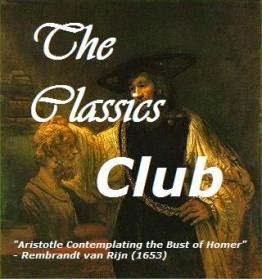Week 2's Nonfiction November prompt is hosted by Leslie at
Regular Rumination.
Three ways to join in this week! You can either share 3 or more books on a single topic that you have read and can recommend (be the expert), you can put the call out for good nonfiction on a specific topic that you have been dying to read (ask the expert), or you can create your own list of books on a topic that you’d like to read (become the expert).
While my original "Expert" post for this week focused on Freak Shows, I also have long been fascinated with Fairy Tales, so I thought I would take this opportunity to research some books which will:
- Provide me with the ORIGINAL iterations of fairy tales
- Compare the originals with the "softer" versions we have today and hopefully expound upon the socio-cultural shifts which necessitated those changes
- Analyze the importance and effect of fairy tales on both children and adults
This was most definitely not as easy as I thought it would be. Trying to find a collection of original fairy tales - which are actually the originals - is proving quite difficult. The Grimm Brothers certainly collected the original tales; however they had to tone down the tales they collected for their entirely unintended young audience. As such, some of the anthologies claiming to be the "original" stories are actually just the first sanitized versions.
Charles Perrault, the Grimm Brothers predecessor, never, I believe, sanitized the tales he told, so it's quite possible that books by him, like
Perrault's Fairy Tales, do have the originals.
If any of you have read books that are the actual original fairy tales, please let me know in the comments!
For information on the differences between the original tales and their current versions, there's a ton of articles and sites you can find online. For example, we have a
Huffington Post article about the real life origins of some of our most famous fairy tales, and here's another from Huffington about
the original iterations of a handful of fairy tales. In the Books section of the UK's Stylist, we have an article listing the
8 Darkest Fairy Tales along with their original authors.
Any other online sources you find useful on this topic?
Fairy tales themselves are classified as nonfiction, but I wanted some secondary sources as well, and these are the most interesting sounding ones I have found so far (summaries from GoodReads):
From the Beast to the Blonde: On Fairy Tales and their Tellers by Marina Warner: In this landmark study of the history and meaning of fairy tales, the celebrated cultural critic Marina Warner looks at storytelling in art and legend-from the prophesying enchantress who lures men to a false paradise, to jolly Mother Goose with her masqueraders in the real world. Why are storytellers so often women, and how does that affect the status of fairy tales?
Mirror, Mirror on the Wall: Women Writers Explore Their Favorite Fairy Tales by Kate Bernheimer: A collection of original essays by leading women writers, including Margaret Atwood, Anne Beattie, Julia Alvarez, Joyce Carol Oates, A. S. Byatt, Rosellen Brown, and many others, explores the various fairy tales that have shaped their lives and their work.
The Uses of Enchantment: The Meaning and Importance of Fairy Tales by Bruno Bettelheim: The famous child psychologist, explains how fairy tales educate, support, and liberate the emotions of children.
The Witch Must Die: The Hidden Meanings of Fairy Tales by Sheldon Cashdan: In The Witch Must Die, Sheldon Cashdan explores how fairy tales help children deal with psychological conflicts by projecting their own internal struggles between good and evil onto the battles enacted by the characters in the stories.
If you have any other suggestions, please let me know!





































